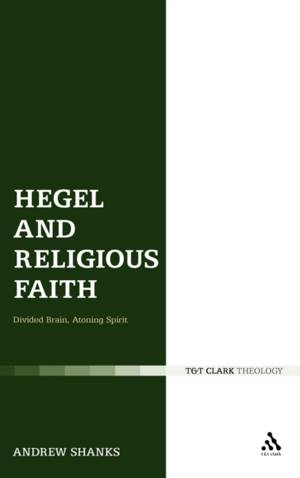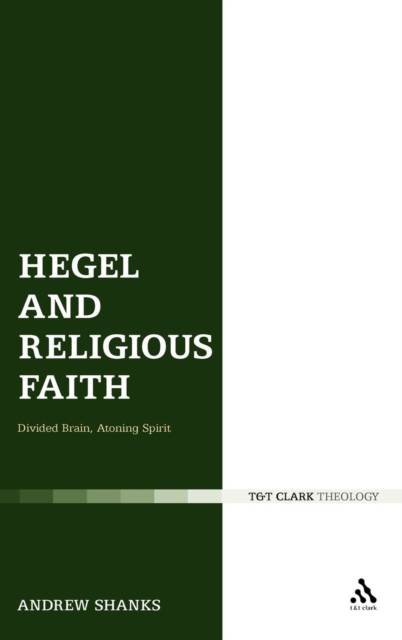
- Afhalen na 1 uur in een winkel met voorraad
- Gratis thuislevering in België vanaf € 30
- Ruim aanbod met 7 miljoen producten
- Afhalen na 1 uur in een winkel met voorraad
- Gratis thuislevering in België vanaf € 30
- Ruim aanbod met 7 miljoen producten
Zoeken
€ 322,45
+ 644 punten
Uitvoering
Omschrijving
Hegel is a thinker who haunts modern Christian theology. Although forever being refuted and rejected, he is also forever resurgent as an influence. Here Andrew Shanks diagnoses that rejection, very largely, as a defensive reaction against the sheer, troubling, prophetic open-mindedness of his thought. No doubt there is some justice to the charge that Hegel is religiously one-sided; in particular, as this criticism has been developed by Kierkegaard and, more recently, William Desmond. Against Desmond, however, Shanks argues that the critique itself is no less one-sided. The argument focuses especially on the dialectic of the Unhappy Consciousness in Hegel's Phenomenology of Spirit, seeking to open up its relationship to recent developments in neuropsychology. Key Hegelian terms are also retranslated, in a bid to minimise the off-putting awkwardness of Hegel's jargon. What is at issue here is, surely, the most explosive element in Hegel's thought as a whole. And this is discussed not just as an item of intellectual history, but, rather, very much as a still-living option.
Specificaties
Betrokkenen
- Auteur(s):
- Uitgeverij:
Inhoud
- Aantal bladzijden:
- 192
- Taal:
- Engels
- Reeks:
Eigenschappen
- Productcode (EAN):
- 9780567532305
- Verschijningsdatum:
- 16/06/2011
- Uitvoering:
- Hardcover
- Formaat:
- Genaaid
- Afmetingen:
- 156 mm x 234 mm
- Gewicht:
- 430 g

Alleen bij Standaard Boekhandel
+ 644 punten op je klantenkaart van Standaard Boekhandel
Beoordelingen
We publiceren alleen reviews die voldoen aan de voorwaarden voor reviews. Bekijk onze voorwaarden voor reviews.







